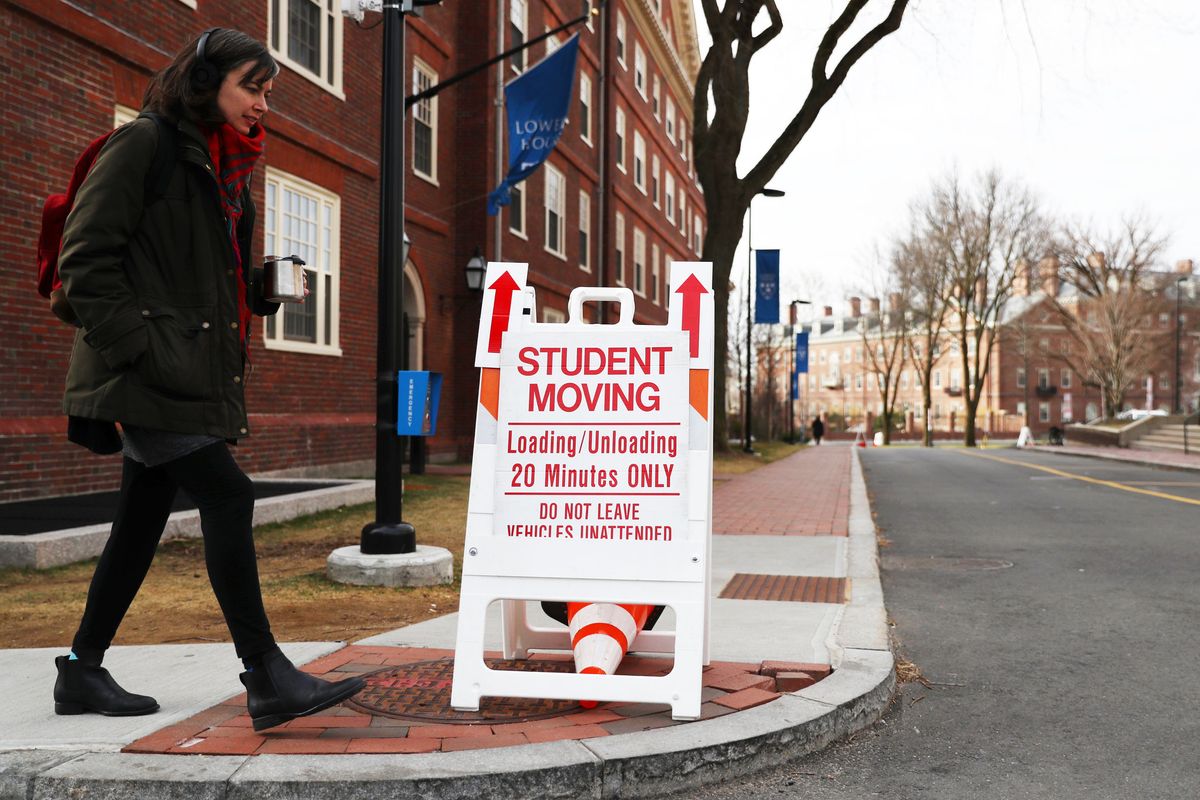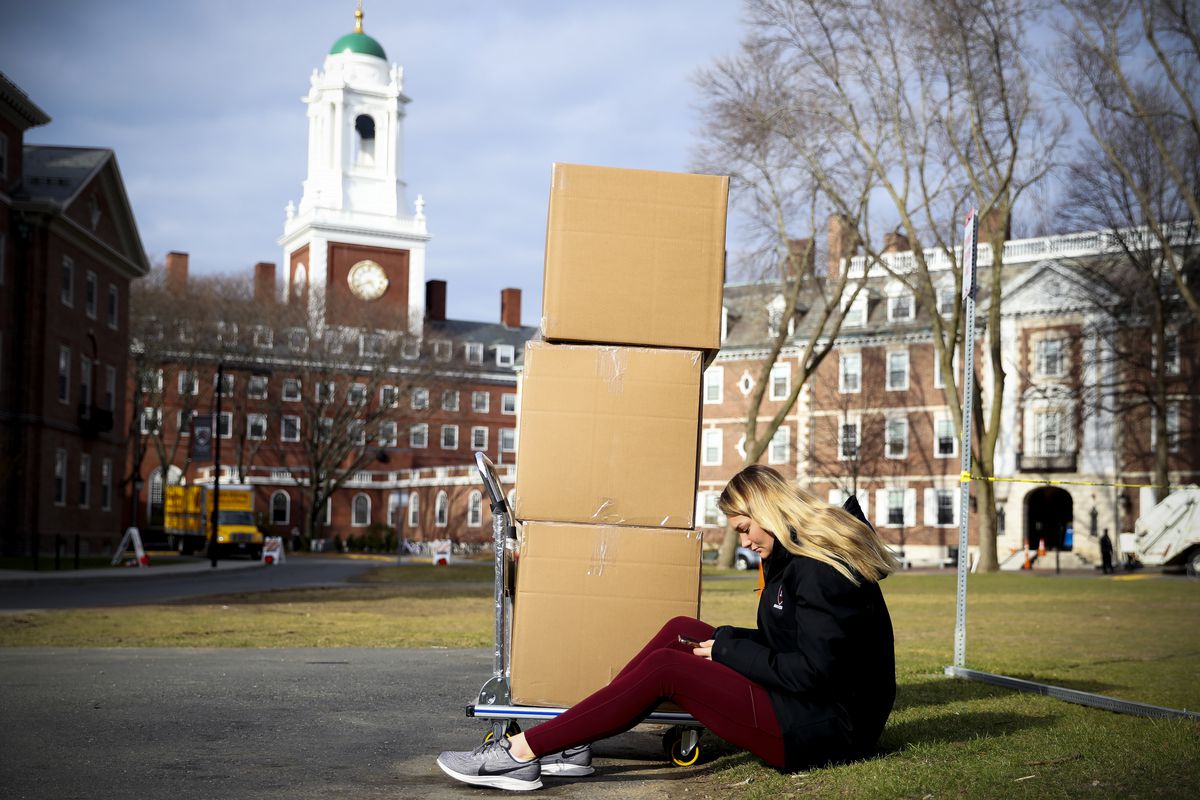The housing crisis on college campuses during COVID-19

A few minutes every morning is all you need.
Stay up to date on the world's Headlines and Human Stories. It's fun, it's factual, it's fluff-free.
As the COVID-19 crisis spreads across the United States, some college students have faced issues regarding campus housing. A significant number of universities have shut down campus dorms over fear of spreading the virus, leaving some students struggling to find a suitable place to stay.
Many colleges have moved the remainder of their semesters online in hopes of allowing students the opportunity to earn credit for classes started earlier in the year. That said, some students were only given a few days to leave campuses, contributing to a sense of insecurity and confusion during the pandemic.
“Some people are panicking, rightly so, because they don’t know what they’re going to do. It’s sort of like a bombshell that dropped on campus." remarked Lee Myers, a senior at Berea College in Kentucky.
International students were especially vulnerable to short notices and housing closures. In the US, there are approximately 1 million international students throughout the country, many of whom rely solely on college housing.
“For those people who are totally uprooted and have to, in four days, figure out how to get themselves halfway across the world, I have a lot of sympathy,” said Trey Rogers, a senior at Harvard, originally from the midwest. “It’s hard enough to get back to Indiana.”
Global disruption

The US hasn’t been the only country to deal with this issue. In Ireland, reports have surfaced of some university students in Dublin, the country’s capital, resorting to extreme measures after campus dorms were closed down.
“Recently we’ve had an increase in the number of students arriving in our door carrying sleeping bags instead of their books,” said Una Carroll, a student welfare officer at University College Dublin. “We have students who are sleeping in cars, their friend’s cars, [or] on the floors of their friends’ accommodation.”
Others worry that international travel restrictions could continue over the longer term, potentially impacting their ability to return to campus. “I can’t really go back to Mexico,” argued Eudelio Garza, a student at the University of Southern California who’s in the country on a student visa. “There’s a huge likelihood that Donald Trump imposes a border closure. That’s my biggest fear: that if I leave the US, I won’t be able to come back for like two months.”
On April 20, Trump extended “non-essential” travel restrictions on people entering from Canada and Mexico for another 30 days. Students with valid visas, however, are among the exemptions to the policy.
Underlying housing inequalities
For the students with little place to turn after campus housing closed, underlying inequalities in the larger housing market could be contributing to a sense of desperation. According to Richard Florida, a professor at the University of Toronto’s School of Cities and a fellow at New York University’s Schack Institute of Real Estate, unequal access to housing is a main driver of broader economic divides within society.
Pointing to research on the topic that utilized US census data from the 1930s to 2012, he notes that the median cost of a house has tripled in real dollar terms, meaning the changes in cost of living were accounted for. Furthermore, at least in the US, ever increasing rental prices, especially in larger cities, have contributed to inequalities in the market, creating gaps in the ability for some to afford an apartment.
For some students, many of whom live in financially precarious situations, finding a suitable place to rent on short notice and a tight budget has proved difficult. In some cases, students have sought dorm reimbursement payments to offset the costs of housing they won’t be utilizing.
While some colleges have willingly waived dorm costs for the semester – at least in part – others have been told that their school was in no financial position to return student’s money, despite the fact that campus was temporarily shutting down.
Campus housing bubble

Before the coronavirus crisis hit, some analysts were concerned that a housing bubble was forming on college campuses across the US. Over the past several decades, high-priced and luxurious dorms have sprung up on many campuses. Although these afford colleges an opportunity to charge higher rental prices on these buildings, there has reportedly been a rise in loan defaults on these properties in recent years despite the booming economy.
While it is uncertain how an economic recovery – or lack thereof – might impact schools’ ability to pay back their loans during the ongoing health crisis, an all but certain reduction in international students for the upcoming academic year could leave schools scrambling to fill some of their buildings to maximum occupancy, potentially risking another source of income.
“The overall position for international education is… going to take a massive hit [due to the pandemic],” said Simon Marginson, director of the Centre for Global Higher Education, an education-based research institution. “I think we are looking at least a five-year recovery period in terms of the numbers of people that move between countries for education.”
[article_ad]
Have a tip or story? Get in touch with our reporters here!
Sign up for daily news briefs from The Millennial Source here!




Comments ()